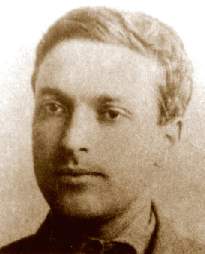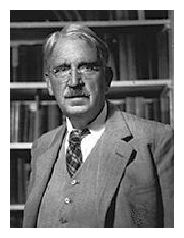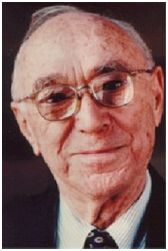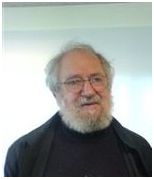Jean Piaget [1896-1980]
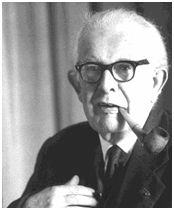 When the Swiss psychologist Jean Piaget hypothesized that children had their own method of thought processing and logic, Einstein called his reasoning “so simple, that only a genius could have thought of it” (Papert, 1999, p. 1). Through his 75 years of research on how children learn and develop, Piaget developed new areas of science including developmental psychology and cognitive theory. His belief that children are not “empty vessels” to be filled with knowledge but instead active participants in making meaning of their own learning, influenced both educators and researchers to change the way children are taught in schools (Papert, 1999).
When the Swiss psychologist Jean Piaget hypothesized that children had their own method of thought processing and logic, Einstein called his reasoning “so simple, that only a genius could have thought of it” (Papert, 1999, p. 1). Through his 75 years of research on how children learn and develop, Piaget developed new areas of science including developmental psychology and cognitive theory. His belief that children are not “empty vessels” to be filled with knowledge but instead active participants in making meaning of their own learning, influenced both educators and researchers to change the way children are taught in schools (Papert, 1999).
Lev Vygotsky [1896-1934]
Lev Vygotsky believed that the role of the student’s environment played a big part in learning. The Russian scientist thought that learning and problem solving was enhanced by working with others in collaboration. Language was of the utmost important to learners according to Vygotsky. It was through language that children were able to express their thoughts to others as well as to obtain meaning from peers and teachers (Cole, M. & Wertsch, J, 1996).
John Dewey [1859-1952]
The origin of problem-based learning is credited to the American psychologist John Dewey, who believed that learning did not come from drill and practice exercises. Dewey thought that in order to learn, children needed to be immersed in experiences that illustrated the importance of learning skills. For example, fractions and proportions could be learned through cooking or calculating travelling distances (Smith, M.K., 2001).
Jerome S. Bruner [1915- ]
Process beats product is the underlying theory behind Bruner’s beliefs of learning. Bruner believed that students learned better through a process of discovery and that fostering the opportunities for students to learn on their own would set them up to be life-long learners. Bruner eventually become the cofounder and director of the Center for Cognitive Studies at Harvard University (Smith, M.K., 2002). Please view a brief video from Bruner here.
Seymour Papert [1928- ]
As a former student of Piaget, Papert developed his theories of learning from the mindset of students constructing their own learning through meaningful challenges. He felt that when students were working on actual problems that held their personal interest, artifacts he called objects to think with, they were able to make their own meaning of things. His extensive use of computers with children for learning and enhancing creativity was both controversial and ground breaking (“Seymor Papert”, n.d.).
References
Cole, Michael, & Wertsch, James V. (1996). Beyond the Individual-Social Antimony in Discussions of Piaget and Vygotsky. Retrieved from http://www.massey.ac.nz/~alock/virtual/colevyg.htm
Papert, Seymor (1999, March 29). Child Psychologist Jean Piaget. Time Magazine. Retrieved from http://www.time.com/time/magazine/article/0,9171,990617,00.html
Seymor Papert (n.d.). Retrieved from http://www.papert.org/
Smith, M.K. (2001). John Dewey. Retrieved from http://www.infed.org/thinkers/et-dewey.htm
Smith, M.K. (2002) Jerome S. Bruner and the Process of Education. Retrieved from http://www.infed.org/thinkers/bruner.htm

